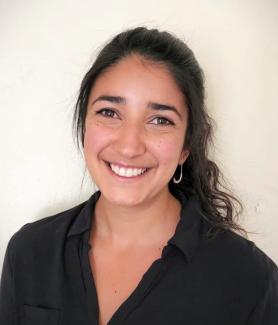Event
Bright lights and hot summer nights: an integrative approach to understanding avian responses to urbanization.
Dr. Valentina Alaasam, New York University

Abstract: Cities are some of the most rapidly altered environments on our planet. Factors such as light at night, noise, chemical pollutants, and heat pose challenges to living systems, with broad implications across scales of biological organization. Nonetheless, many species rapidly adapt, persist, and even thrive in urban landscapes, presenting opportunities to test hypotheses about the factors that facilitate or constrain responses to novel conditions.
My work integrates laboratory experiments and field studies, linking behavior, physiology, ecology, and genomics to gain a comprehensive understanding of avian responses to urbanization. In the lab, I isolate urban stressors and investigate the mechanistic pathways underlying organismal responses. For example, I have used this approach to show that light pollution exposure can alter behavior, endocrine systems, cardiovascular plasticity, oxidative balance, and gene expression, using zebra finches as a diurnal vertebrate model. In the field, I leverage inherent environmental heterogeneity in cities to ask how phenotypic, ecological, and genetic processes interact to affect evolutionary responses of populations. I am currently using this framework to investigate how hummingbirds are coping with urban heat. By establishing parallel systems of urban gradients across North, Central and South America, I will determine how geographic context affects evolutionary responses and the potential for evolutionary convergence across species.
